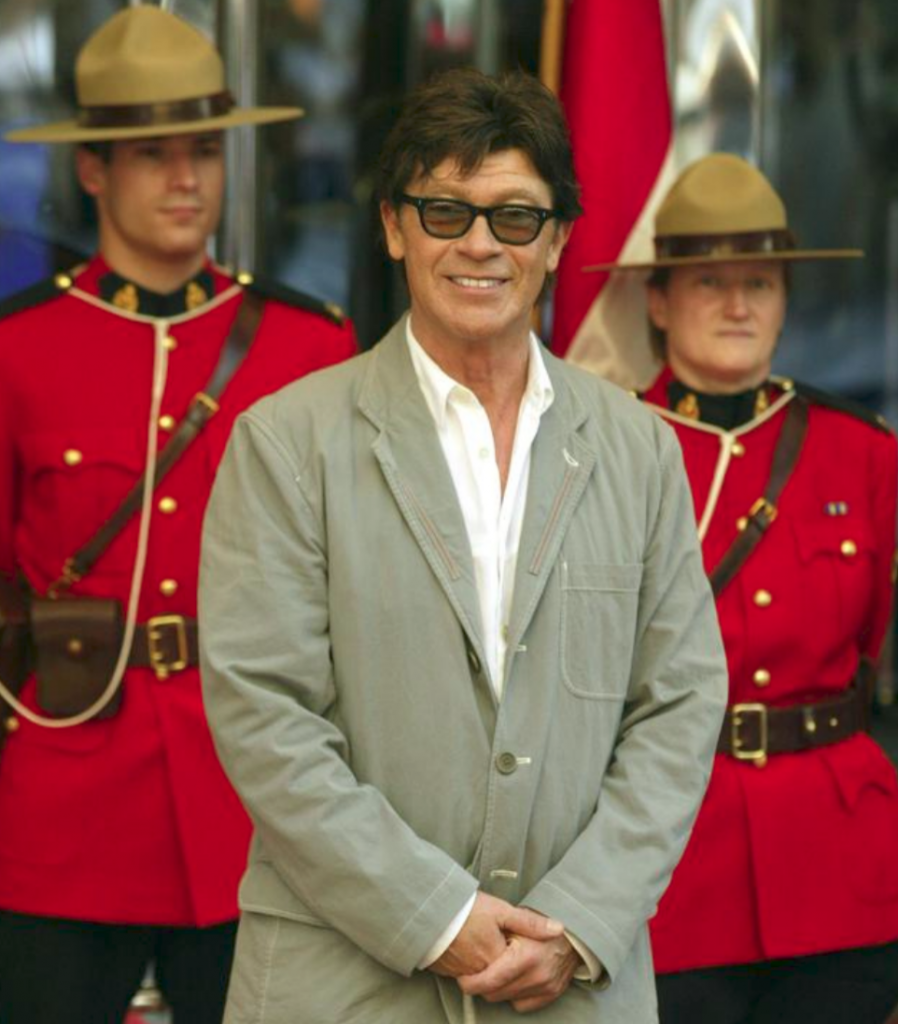
Robbie Robertson and I reunited in March 2011 at his favorite haunt, the Village Recorder studio in West Los Angeles (where Bob Dylan recorded Planet Waves in 1973 with the assistance of Robertson and The Band). Our first meeting there was in 1998 to discuss his Indian-themed album Contact From the Underground of Redboy, whose hypnotic tunes and deep message have never left me. That was a killer interview. I remember him saying that Dylan had once told him that Shakespeare was a load of rubbish. Our reunion was for How to Become Clairvoyant, an album featuring a lot of Eric Clapton. Robbie Robertson had recorded it right where we were sitting, in a room adorned with his priceless guitars hanging precariously on the walls.
Would it be fair to say that you stepped out of your comfort zone with the previous record (Contact From The Underground of Redboy, 1998), and returned to a more comfortable zone with this one?
It was a different kind of departure but that’s also a comfort zone for me, too, in another kind of way, when you’re revisiting part of your heritage and you’re doing something that’s fulfilling a certain kind of dream. For the outside it might seem like this is more of my comfort zone, but they’re both places that are just a big part of who I am and what I do. It’s just left hand, right hand, I think. This is more what people know me for.
It’s been 13 years since that record. Briefly, what have you been up to in that time?
Oh yeah, just a ton of things. I was working with DreamWorks for a few years … It was a really interesting sandbox, that thing, and the way that David Geffen presented it to me. He was like, “Do whatever you do, come and have some fun with us. We’re trying to build something really beautiful here that hasn’t been done in a long time. We’ve got animation films and live-action films and music … Come and do it with us for a while and see what you think.”
And Mo Ostin and David Geffen, they were so generous with their luring me into it. Generous in the sense that David said “Take my office.” Mo was like, “This will be great. You can work on these things with that or with these or whatever you want to do. And you can do your own projects.” For me, a big part of what keeps my wheels turning is the challenge of something and learning something in the process. There’s a few things that I already know, and there’s some things that I’m anxious to know more about and learn about, so that was part of it. And to be able to do some things with the animation people or some of their live-action films that they were doing were things that I wouldn’t normally do. I kinda stick to my stuff with Martin Scorsese or Oliver Stone or whoever I work with, and this was a different adventure. But this was also before the music business just became a whole different animal.
It was a great learning process but I did a lot of other stuff while I was there too. I put together this musical history of the Band boxed set while I was there, and I did the anniversary of The Last Waltz where I had to mix the movie all over again in 5.1. On the soundtrack there was something like 24 additional tracks that weren’t in the original soundtrack. I had to mix everything all over again. These projects take up a considerable amount of time.
Plus I was working on the music for several movies in the course of it. There wasn’t very much vacation time in there. But I don’t have an obligation or a deadline that I have to do records and tours and things. I’m not interested in that anymore.
It’s not like you’ve done a tour recently?
No, I don’t do that anymore. I just can’t bring myself to get on the bus.
What if the bus takes you to the El Rey for a couple of shows?
(laughs) You never know what could be interesting tomorrow. But I gave that up a long time ago. I made a movie about it! That’s not what I do anymore.
At DreamWorks you got a first-hand view of both the industry imploding and the label itself going under. it must have been fascinating to see that slow-motion train wreck unfold before your eyes?
Yeah and it was interesting because there were people that were a big part of the Internet revolution, and there are so many good things that come out of that. But there’s so many things that it makes obsolete too. It’s like robots. There’s bound to be convenience in some ways. There’s good things and bad things about all of this stuff. It was a terrible thing to see DreamWorks Records, which was really building something very interesting with great artists and great integrity and it was something to be very proud of. And then it was, “Oh this is no longer a business. Huh, OK.” And then you can either try to fight that and demand nostalgia or you could say, “I’m really curious of what’s ‘round the next corner too.” So being torn between those two places was definitely a bit of a challenge, and it was sadness involved in it and excitement. But for these people that had done an extraordinary job of building that company so far, I felt very sad about that.
I’m working on the thesis that the ’90s was the last gasp of the record industry. You got your previous record out just in time.
I don’t know that the deal is because it doesn’t seem like there’s a shortage of music. It’s quite extraordinary that it hasn’t changed anything on that side of it. It’s just figuring out it’s a different business. There’s so many people that had so much time in their lives invested in that formula that they are like, “Oh my God, it’s the end of the world.” But the creative side of it doesn’t seem to be very different to me. It’s interesting because it looks like, “Oh this just hasn’t been rediscovered yet, and the revolution’s not over and there will be a way that this all just takes shape and it makes perfect sense and hopefully it’ll be like better than ever. But we don’t know yet.”
You’re also lucky that you achieved fame and fortune before all this had happened. If the Band were starting out now would you have had the same success?
I don’t know. It’s hard to take something out of one period and put in another and see if it makes sense.
In the past 13 years, we had Clapton releasing about six records, Fogerty and Dylan each doing about three records. And you had a grand total of zero. Did it ever occur to you to release a few records in that time?
Of course it crossed my mind, but I was really caught up in what I was doing. I didn’t say, “Oh my God, I’m sitting around gathering dust. I should be keeping myself busy.” It was never like that. But I did think of that, and I was also a little bit just seeing how things were gonna unfold in all of this. I really like the idea of making a record when I’m inspired to do so, not because I should or somebody else thinks it would be better. And this record was one of the most enjoyable musical experiences of my life.
Did Levon Helm’s recent creativity burst also spur you on?
I didn’t think of it like that. I was just glad because I knew Levon had come through throat cancer and that he was making a record. I just thought it was great that he was able to do that and that he does good work.
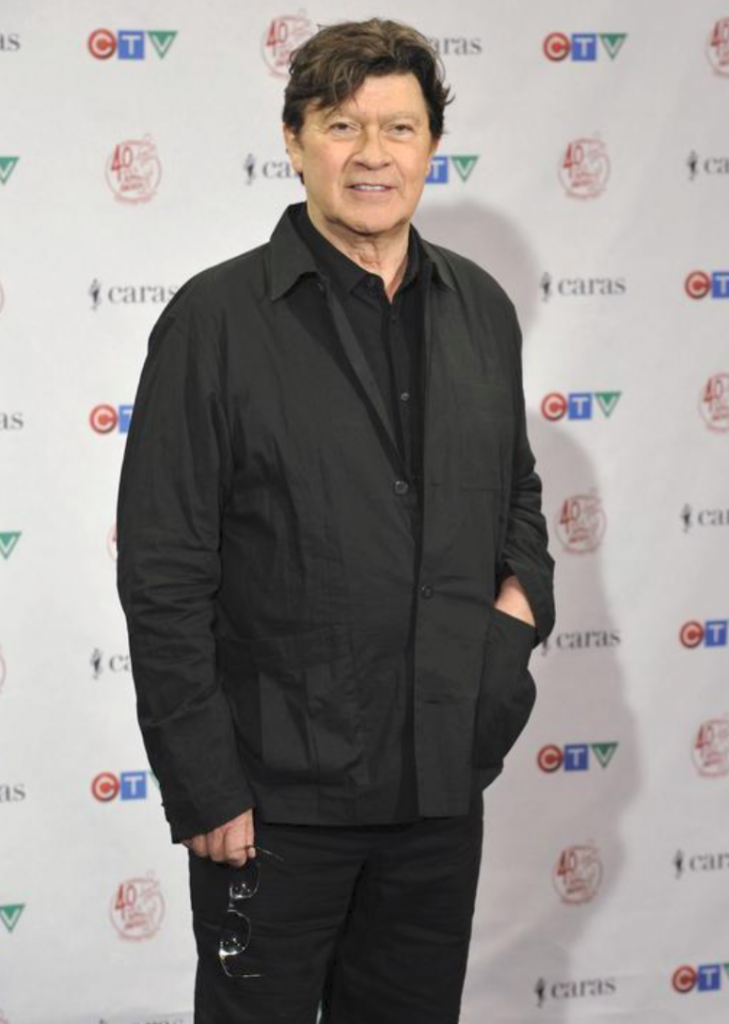
Did you ever consider making this record a full-fledged collaboration with Eric, in much the same way as he paired on albums with B.B. King and J.J. Cale, and as Elton John just did with Leon Russell?
When we were working on this record we didn’t know if it was going to be an Eric record or a duet record, like what you’re talking about whatever they call those, or a Robbie record. We were just going to see what happened. I liked that idea too that there were no boundaries, nothing specific. Let’s see how it flows and where it leads us. And after we recorded these tracks in London, Eric said to me: “Well, you’ve done most of the songwriting and most of this direction where everything has gone. This should be your record. And I am really happy to be supportive and play on it or sing on it or do whatever I can do, whatever you want me to do.” It was just the tremendous generosity of a great friend.
Did Eric do your laundry as well?
It never came up but there was a couple of points there where I thought I could use a little help!
I saw those photos on TMZ of Eric in a laundromat
Oh! Is that what that was? I didn’t see that … Wow! I think it’s good that he’s got humility, and keeps it down to earth that way.
You have a lot of backing vocalists high up in the mix? Is that because you’re insecure about your own voice?
(laughs) Umm, like who? (“Fear of Falling,” “When the Night Was Young”) … Angela McCluskey? I just love Angela McCluskey’s sound. All of these people that are working on this record, it’s just really good casting on my part. Angela did exactly what I was asking her to do. “When I sing something, react to it, echo it. Sing it with me, but don’t sing it exactly with me.” It was just a feeling of another way to treat a vocal as opposed to them just trying to be tight and right on.
I like your voice just by itself
Yeah, it was just something that I heard on those songs. And it’s exactly what I wanted. Right or wrong this is the way I heard it. One of things that I’m quite grateful for is after we cut these tracks in London, as soon as I got back here I had to figure out the music for Shutter Island for Scorsese. I came up with the idea of using all modern classical composers in this. I just thought it was right for the material and I gave Marty some examples of it and he said, “I think this is really good. Let’s go in that direction.” I know something about modern classical music but I was not an authority on it. I’m an authority on it now! It was an amazing departure from what I had just done. This is another reason why things are done over a period of time because there was nobody saying, “You’ve got to get this record done.” In the old days, you would go in to make a record. You’d have a few songs, and you’d go in there and you would beat your head against the wall until it was done, and then you would hope that the decisions you made were good decisions or what you really wanted to do or what would hold up for you in time. And on this record, I didn’t feel that. After I did the whole thing with the classical music and everything, when I came back to this record, I thought I’d love to get Tom Morello to play on this “Axman” song with me. I’d like Angela McCluskey to sing a background vocal for me on these two songs. I’d like Robert Randolph to play on these. I’d like Trent Reznor on this traditional piece of music. I want it to be slightly bent, and because his whole cinematic connection now and everything. It was brilliant casting on my part. When I was done with this record I thought that’s exactly what I was looking for.
Why didn’t you have Trent on more than just “additional textures” (on “Madame X”)?
That’s just what he called it, and I liked that it was a name that I’d not heard before. He just felt modest about participating on it. He’s a great guy and he was so generous. He sent me eight tracks of things that he had done on that song. I took those eight tracks and conducted them into the piece of music the way that I wanted it. Some guys would just send you one thing and say, “That’s it, that’s what I can do, take it or leave it.” And he was just giving me beautiful options and unexpected options, too. Nothing was obvious in what he was doing. That’s just what I was hoping for, and it was exciting. And he allowed me to take his contribution to it and make it work for the track the way that I heard it.
Why did you not use him on more tracks? Make it a techno record?
I just wasn’t interested at that time in doing anything other than what we were working on. But I’d be delighted to work with him again in the future.
It’s very tantalizing to see Trent and Tom listed as guests. But they’re just on one track each.
Well, I had Eric on so many tracks and Steve Winwood and the other guys and everything. I wasn’t trying to find a formula to it. After I was done with the way that I’d put together the basic tracks for this record, then I didn’t have Eric and Steve and those guys. I had to figure out the rest of the casting, and so I got to do whatever I wanted. That’s just the choices I made.
Is there a particular catalyst in your life that brought out the lyrical content of these revelatory songs like “Straight Down the Line,” “When the Night was Young,” “He Don’t Live Here No More” and “This is Where I Get Off”? You’ve never really been that autobiographical?
I know.
Was something going on in your life?
Something’s going on in my life. On this record, it just happened naturally that something in the past that I wasn’t comfortable with at all. I didn’t like writing songs like, “I got up this morning and this is what I saw.” I always thought that people who did that, it was just so self-indulgent. I always took the path of more fictional and more mythical. And of course plenty of personal stuff finds itself into those songs, but I wasn’t interested in doing me-me-me music. And writing for the band, I didn’t want to show up and say, “Guys, I’ve just written a fascinating song about myself. Let me see who I think should sing this.” I’m just not comfortable with that at all. And over time, and there’s enough distance, the reflection of what I’m writing about in this, there’s been enough time that I can address it now, and I’m opening a door because I’m going to write an autobiography now. And this album helped open that door for me.
How far along are you with the autobiography?
I’m gonna start probably in two months … I’m gonna do it myself. I just have to roll up my sleeves, get a cabin in the woods and do it properly.
Do you have a publisher?
Yeah, it’s with Random House.
Do they have a deadline?
Yeah, there’s always a deadline. Usually these books take a year and a half, two years. If I can do my best to keep other things at bay for a while just so I can get a good jump-start on this … But I’m very excited about doing it.
Do you have a title in mind?
No, it’ll tell me the title.
Will it be linear?
No.
It’d be cool if it was like Dylan’s book.
You know, I haven’t read that. I have that book, I have Patti Smith’s book, I have Levon’s book, I have Christopher Hitchens’ book, Keith Richards’. I have a pile of them, and more, a pile of them. And I keep thinking, “Is it good for me to look at these? Or is there just a pure innocence about me just going into this?” I don’t know if I wanna know what somebody else did in their thing. But I do have a structure that I’ve started to sort out in my mind. [NOTE: Robertson’s memoir, Testimony, finally came out in 2017.]
“He Don’t Live Here No More” was all about your times on Mulholland Drive with Scorsese, snorting massive amounts of Colombia’s finest and watching movies 24/7? Or am I romanticizing something?
Everything gets a little exaggerated in time … I wrote that song, kind of at Eric Clapton because “he don’t live here anymore.” I’m really referring to not being in that place anymore. Eric is a great example of that and helped so many people. He just sends a great message. Also in it, I was thinking about my bandmates back then. I wasn’t thinking about living in a time and in a circle where this kind of decadence had run amok. I didn’t know anybody who wasn’t living the same lifestyle as what we were. What Marty and I were doing was no different than anybody else I knew. Literally, everybody I knew. Except our accountants! Our accountants, we were hoping, weren’t living the lifestyle we were. It was just part of the culture then. It had gone from this experimental thing of mind expanding in the late ’60s with marijuana and LSD and variations on that kinda stuff, and it went to this other place and it didn’t look that dark from a distance. But when you got inside of this tunnel, you realized it was very dark in there, and that a lot of people — like I said, everybody we knew — went into that tunnel and a lot of people didn’t come out the other end. And that’s what inspired me to write about that. The fact that we were fortunate enough to hit a wall and say, This is no good.
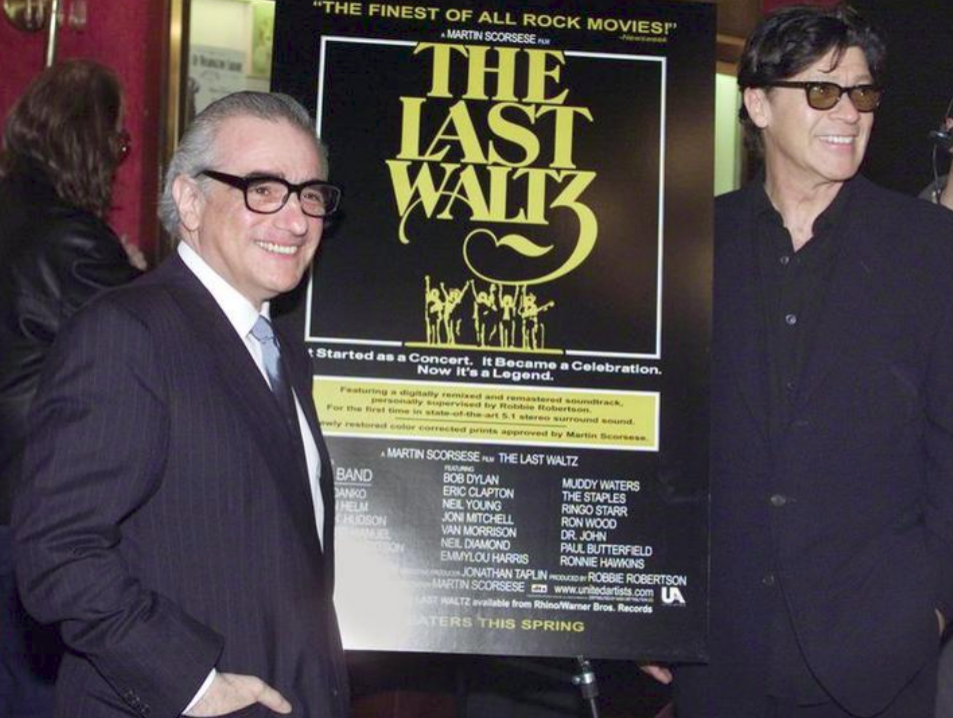
You had kind of a “lost weekend” with Marty?
Yeah. We did a lot of good work. I don’t know how lost we were.
It’s almost like a fantasy life: he was living the rock-star lifestyle, and you were getting an insight into people’s lives
Marty has said, around that time, that he felt like he was a frustrated musician. And he knew that I was a movie buff. I didn’t choose Martin Scorsese because I don’t know what I’m doing. I know the difference in filmmakers. Even when I was playing with Ronnie Hawkins and the Hawks, a lot of the afternoons I would go by myself to movie theaters and watch 8½. I’d go and see Jules et Jim. And then after that I went through a whole Bergman period and Howard Hawks and Welles, all of these people. I went through this thing because it fascinated me. I had a full-time job. I wasn’t thinking, “Oh, as soon as I’m done playing rock’n’roll, I’m gonna start directing a movie.” I didn’t think that except that I was fascinated by the ingredients that come together to make something so special. I was like, “Who wrote that? Who shot that? The lighting, oh my god! That shot John Ford did from inside the building, to the outside seeing John Wayne walking.” These things fascinated me.
When Martin Scorsese and I were housemates, there was a thing on the wall in the kitchen of movies to get. We had a screening room. I would be putting down rare Bunuel films and things. And he would be putting down rare trash, B-movies. I was like, “OK.” I didn’t quite understand what this meant, but there were things that I wanted to see or that I hadn’t gotten to see, like Simon of the Desert, Bunuel’s film, or something. When we would watch these B-movies, and by trash I don’t mean bad, I mean that they weren’t classics or anything. But some of them were Sam Fuller movies, and when we were living there some nights Sam Fuller would just show up at the house, too.
But anyway when we would be watching these B movies, Marty would be pointing out — he’s a teacher, he was a teacher at film school, and he has this instinct to share with you particular things and reasons. He’d say, “Watch what happens here, watch the way the camera comes around the tree, and you see this and how that moves down and how that happens…” He said, “I’ve never seen that in any other movie before. That is so great. And then listen to the line that’s gonna follow it.” And it was a fantastic education. It was so enjoyable. And then we would go in the other room and I would play him music that he wasn’t familiar with, and that music would end up in his next movie. Some of the films that we were watching would inspire me to write a song as well. It was an extraordinary exchange of passions.
How long was that going on for?
A couple of years … Both of our wives had thrown us out at that time.
Have you had any feedback from Scorsese on this album?
He’s been in London shooting a movie, and I think he’s just now getting back. He’s heard “Tango for Django” off this record because I wrote that very much with him in mind. Just because that’s part of what we do.
He’s “Django?”
No. He is somebody that would appreciate that piece of music and understand the dynamics in it. As a filmmaker, I’m pretty sure that piece of music and “Madame X” are both going to end up in movies somewhere. I just wanted him to hear it. It’s part of what I was inspired to do from working with him over the years.
“Madame X” was actually referenced in “Somewhere Down the Crazy River” [from Robertson’s self-titled 1987 solo debut album], right?
Right!
Is she a fictitious character?
It’s a fictitious character but it’s becoming more real all the time. That’s part of the whole clairvoyant experience. You imagine something and then it actually takes place. There’s a lot of that going on these days?
Have you had any reaction from the bandmates about “This is Where I Get Off?”
No, because the record doesn’t come out for another month, so I don’t think anybody would have heard it yet.
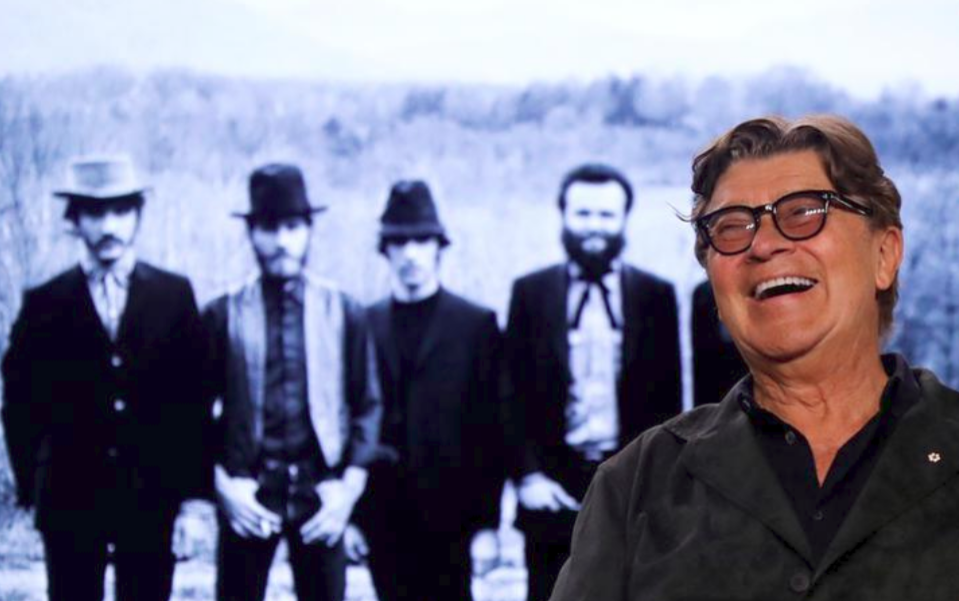
I’m not overly familiar with their solo material. Have they broached this matter before?
No.
Enough time has passed, I imagine, for any hurt tempers, frayed tempers to be resolved
Oh yeah. Please. Life’s too short.
At least from your perspective?
Yeah.
What’s the extent of your communication? Do you swap Christmas cards?
Garth and Levon, the two remaining members of The Band, they live in Woodstock, New York, and I never get up to Woodstock anymore these days. I still have very fond memories of the place. I saw Garth — they gave us a Grammy award (for lifetime achievement) and I saw Garth came out for that. And I think I’m gonna see Garth in Toronto (at the Juno Awards, at the end of the month). So I’m doing a thing with that, and they’re inducting me into the Canadian Songwriters Hall of Fame, and I’m receiving the Royal Order of Canada. And they’re putting me on a postal stamp in Canada. I’ve gotta admit that’s one that my clairvoyance didn’t see coming at all.
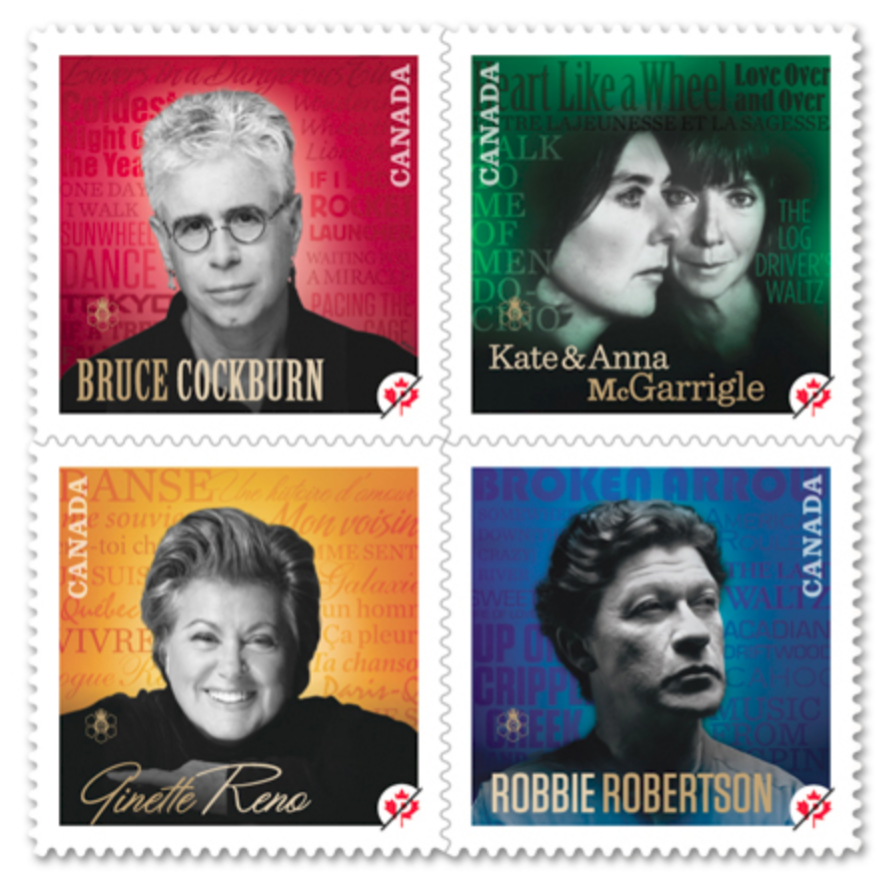
Did Eric do the lyrics for “Fear of Falling” and “Won’t Be Back”?
No, I did the lyrics for “Won’t be Back.” He did the music. I made the music kinda what it is in the process. But he wrote the melody and I wrote the lyrics on that. On “Fear of Falling,” we both wrote the music and both wrote the lyrics.
Are these songs about his experiences too?
I think through a lot of experiences and relationships that you can come to a place where you’ve very suspicious of being hurt and being vulnerable. That is like saying, “I’ve learned some lessons here and hopefully I’ll not make the same mistakes again.” That can easily prevent you from fulfilling some other things too. Nevertheless if you have that fear of falling, you go around with this thing. It also has to do with somebody in a position in life like he is or like I am, too. It’s like a rich person, you don’t know if somebody really loves you or loves the perks.
Do you get this problem to this day? People enter your life and you don’t know, are they talking to me because I’m a good guy or because I’m Robbie Robertson?
A little bit. I think that I’ve outlived that … He’s out there. I just do what I like to do. And I like to stay out of the way too. I don’t like all of the fuss.
As “Brothers of the Blade” yourselves, how would you compare and contrast your styles?
When I first met him it was in 1968 and one of the reasons that we were meeting is because he tremendously embraced this record Music from Big Pink and the guitar playing on that. I had already done my flailing and wailing with Ronnie Hawkins, with the Hawks, with Bob Dylan. And it was new then. At this point when we were making Music from Big Pink, it was like everybody could do that. It just sent me in a different direction, and I was much more into subtleties and delicacies and somebody that could play like Miles Davis, that could play one note and it meant more than this other guy playing 20 notes. So we met on that plane, Eric and I, and we’ve done things over the years. Even in The Last Waltz, there was still a thing going back and forth between us, because we were younger then. And Eric has an extraordinary ability of whoever he’s playing with, he can adapt to that attitude in the drop of a pin. If somebody’s doing backflips with their guitar he can do that too, and will quickly meet you halfway. With me, when we were recording these songs in London we were sitting facing one another and singing at one another and playing at one another and it very much became like the guitars would just pick up where the voices left off and it was like talking guitars. And it was very quickly obvious that there was to be no acrobatics please. That’s not what we’re here for. This is to be an emotional experience, and if these words can bring a warmth to your heart or a tear to your eye these instruments should be doing the same thing. This is not about backflips.
You’re not inclined to do backflips anymore?
I did more guitar playing on this record than I think any record I’ve ever made in my life. But how fast you can play or how loud you can play is just of no interest to me.
“He Don’t Live Here No More” has that cool Keith Richards-style intro
That’s Eric doing that. He’s playing electric guitars on that and I’m playing the acoustic. That guitar over there, that one in the middle, that’s a 1928 triple-O 45, a very rare instrument, gut-string guitar and Eric played it on “Madame X,” “Won’t Be Back” and I think “Fear Of Falling. I played it on “He Don’t Live Here No More” and “Tango for Django.” It is an extraordinary instrument, and Martin now is going to start making that guitar again and they haven’t made it since 1928.
How did you get it?
I bought it off a guitar collector years ago.
Are there any other cool guitars here?
All of these are either different tools or different stories. I just got that guitar back, that bronze Stratocaster. That’s the guitar that I used in The Last Waltz and it’s been in the Rock and Roll Hall of Fame Museum for years, and they just sent it back to me and I’m gonna send them another one. We just wanted to check it out and see how it was holding up. That one over there in the corner with the cutaway (1969 Epiphone Howard Roberts), I used that on The Band album, on a couple of songs, because I just bought it then and it was my new guitar so I was just trying it out.
NOTE: If you liked this, try my gossipy rock bio Strange Days: The Adventures of a Grumpy Rock ‘n’ Roll Journalist in Los Angeles, available here. For more info, go to strangedaysbook.com
Copyright © 2011-2020 by Dean Goodman. PLEASE DO NOT CUT AND PASTE THE WHOLE THING